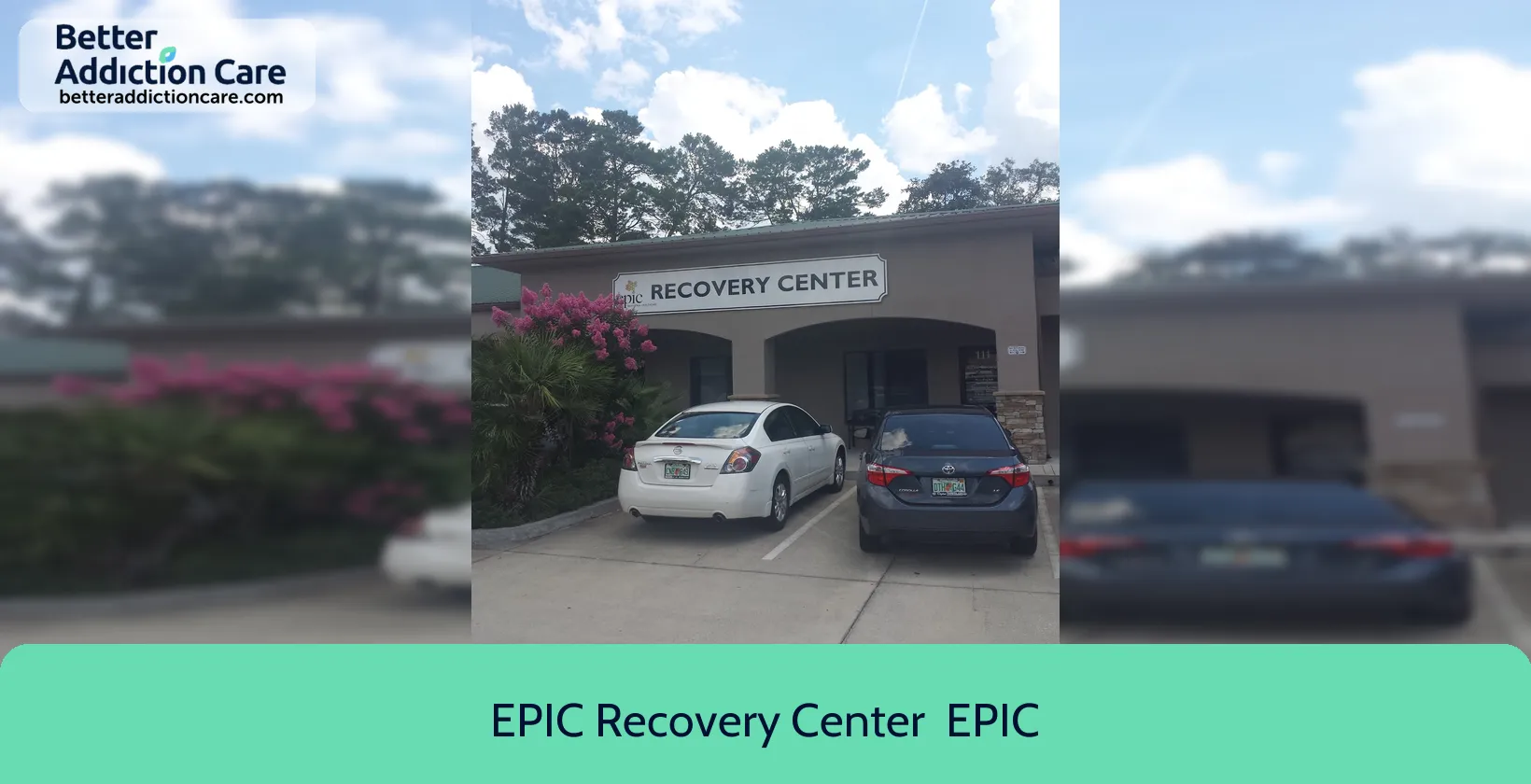EPIC Recovery Center - EPIC Behavioral Healthcare
Overview
The EPIC Recovery Center is part of EPIC Behavioral Healthcare and is in Saint Augustine, Florida. It helps both men and women who are adults (18 and older). The center focuses on intensive detoxification with Medication-Assisted care (MAT) and provides full residential care for people who are addicted to drugs or alcohol. EPIC Recovery Center takes a comprehensive method to helping people get better. They use a system of Education, Prevention, Intervention, and Counseling to do this. The center offers many healing services, such as crisis intervention and groups for dealing with anger. There is also therapy for individuals, groups, couples, and families to meet the wants of all of its clients. EPIC Recovery Center is committed to providing a supportive and successful treatment setting for people with drug use disorders by using Cognitive Behavioral Therapy (CBT) and other methods that have been shown to work.
EPIC Recovery Center - EPIC Behavioral Healthcare at a Glance
Payment Options
- Cash or self-payment
- Medicaid
- Private health insurance
- Federal military insurance (e.g., TRICARE)
- Federal, or any government funding for substance use treatment programs
Assessments
- Screening for tobacco use
- Comprehensive mental health assessment
- Comprehensive substance use assessment
- Interim services for clients
- Outreach to persons in the community
Age Groups
- Young adults
- Adults
Ancillary Services
- Case management service
- Suicide prevention services
- Specially designed program for DUI/DWI clients
- Mental health services
- Social skills development
Highlights About EPIC Recovery Center - EPIC Behavioral Healthcare
7.55/10
With an overall rating of 7.55/10, this facility has following balanced range of services. Alcohol Rehabilitation: 8.00/10, Drug Rehab and Detox: 7.85/10, Insurance and Payments: 6.53/10, Treatment Options: 7.82/10.-
Alcohol Rehabilitation 8.00
-
Drug Rehab and Detox 7.85
-
Treatment Options 7.82
-
Insurance and Payments 6.53
Accreditations
State mental health department:
State mental health department accreditation refers to the process of evaluating and certifying the quality and standards of a state's mental health department, ensuring that it provides high-quality services and meets specific criteria for mental health care. The accreditation process is performed by a third-party organization and helps to improve the overall care and treatment of individuals with mental health conditions.
Treatment At EPIC Recovery Center - EPIC Behavioral Healthcare
Treatment Conditions
- Alcoholism
- Mental health treatment
- Substance use treatment
- Co-occurring Disorders
Care Levels
- Hospital inpatient/24-hour hospital inpatient
- Hospital inpatient treatment
- Outpatient
- Short-term residential
- Residential detoxification
Treatment Modalities
- Cognitive behavioral therapy
- Telemedicine/telehealth therapy
- Substance use disorder counseling
- Trauma-related counseling
- Smoking/vaping/tobacco cessation counseling
Ancillary Services
Languages
- Sign language services for the deaf and hard of hearing
- English
Additional Services
- Pharmacotherapies administered during treatment
- Mentoring/peer support
- Breathalyzer or blood alcohol testing
Special Programs
- Clients with co-occurring mental and substance use disorders
- Criminal justice (other than DUI/DWI)/Forensic clients
- Pregnant/postpartum women
- Clients who have experienced trauma
- Clients who have experienced sexual abuse
Get Help Now
Common Questions About EPIC Recovery Center - EPIC Behavioral Healthcare
Contact Information
Other Facilities in Saint Augustine

7.11
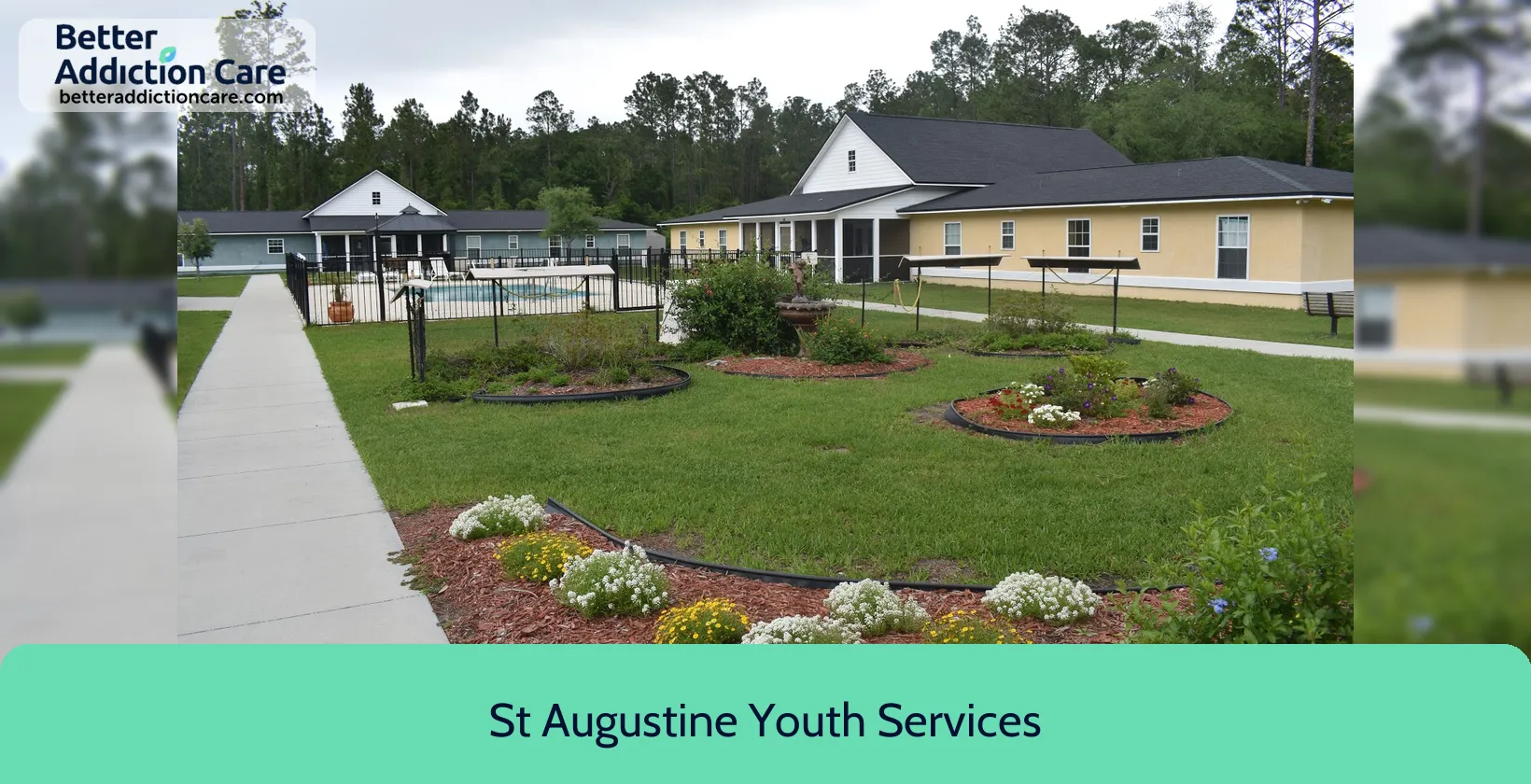
6.56
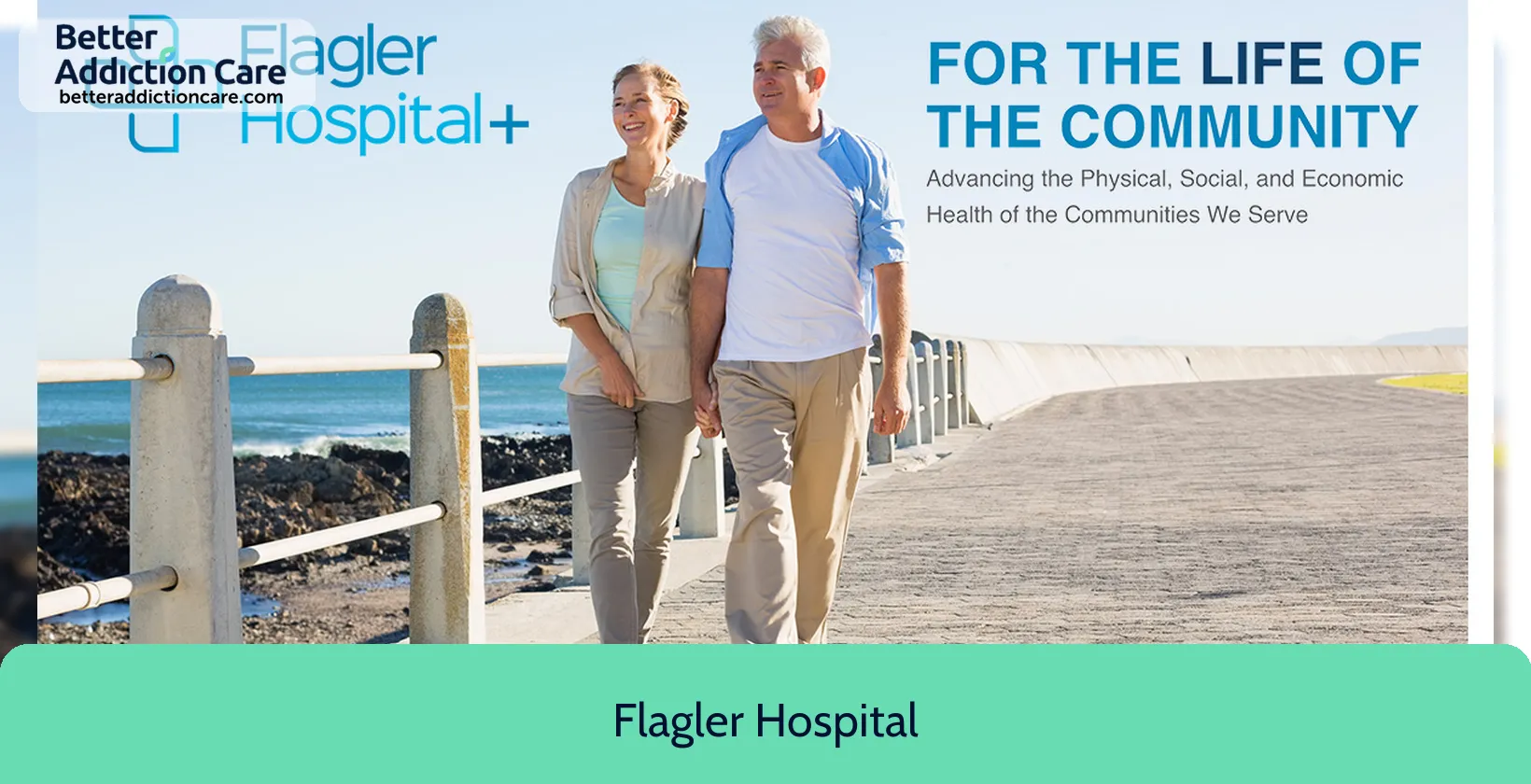
6.68
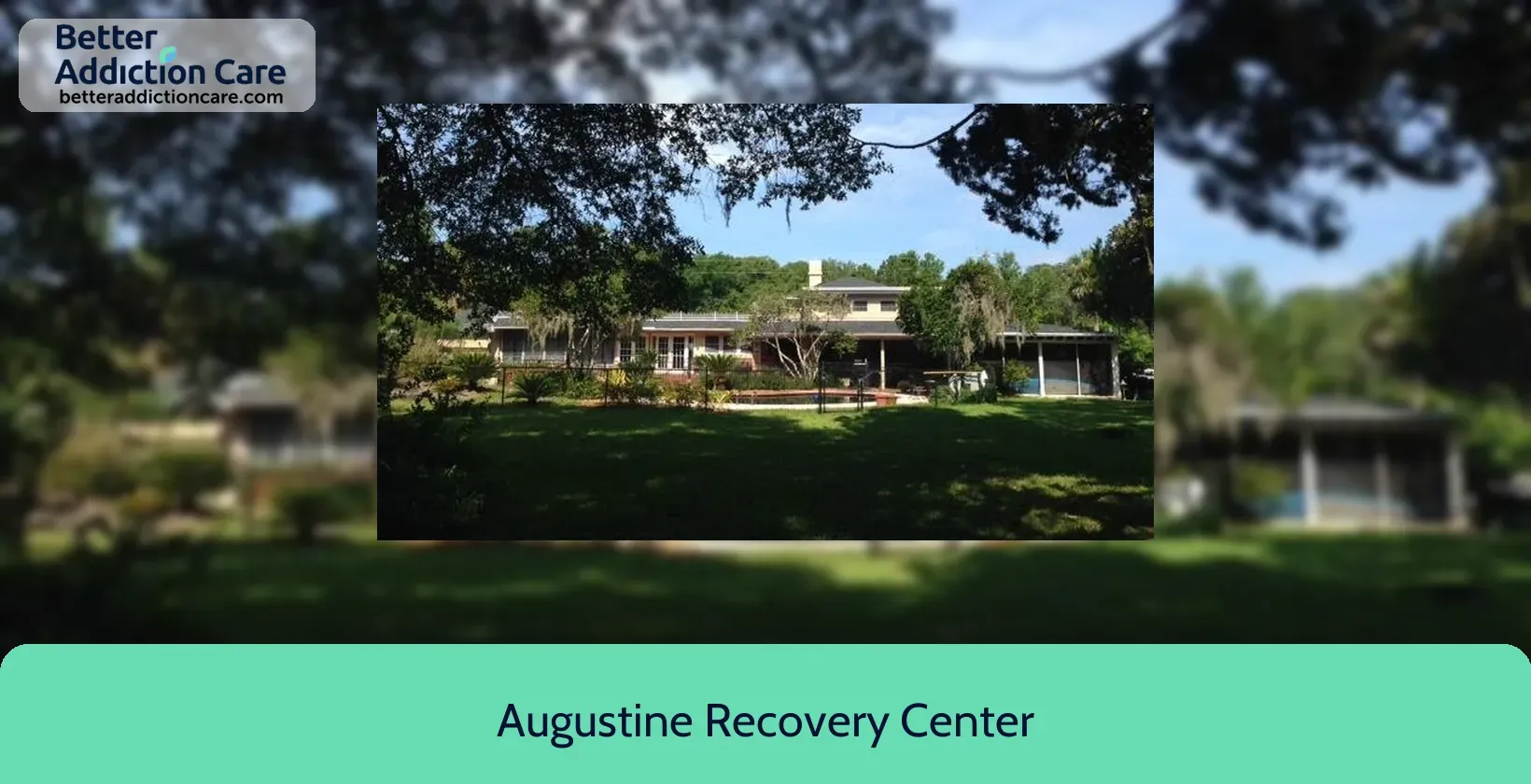
7.60
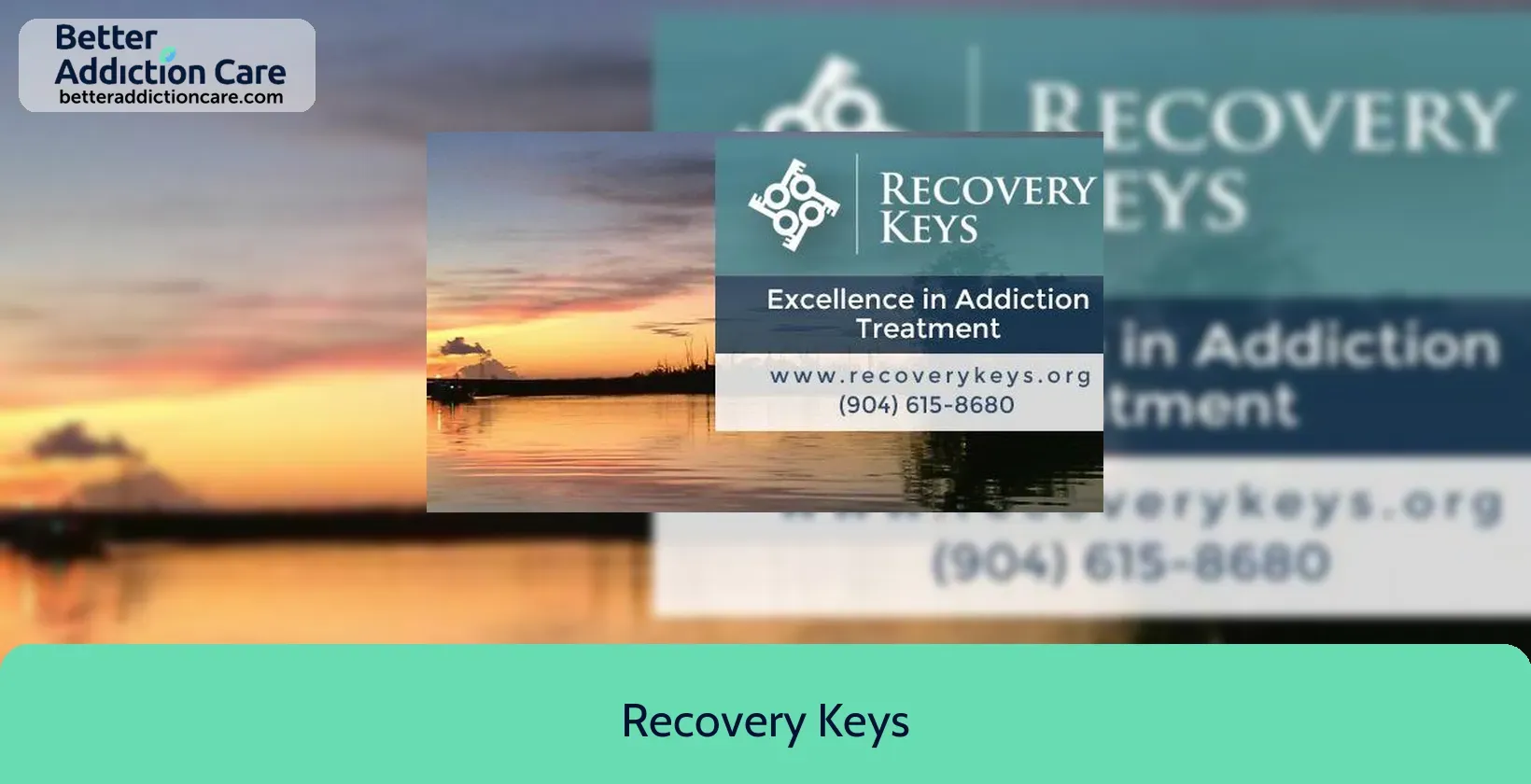
7.25
DISCLAIMER: The facility name, logo and brand are the property and registered trademarks of Recovery Keys, and are being used for identification and informational purposes only. Use of these names, logos and brands shall not imply endorsement. BetterAddictionCare.com is not affiliated with or sponsored by Recovery Keys.
